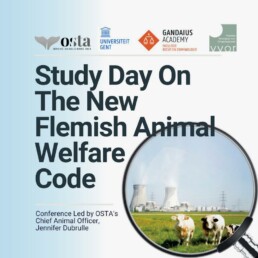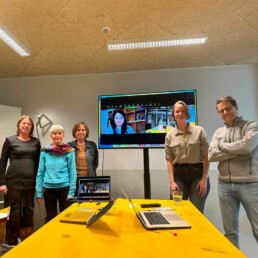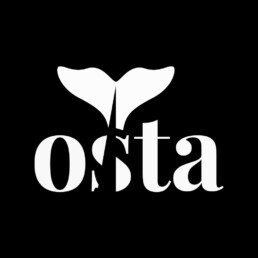
Professor Arie Trouwborst’s Inaugural Address
A Vision for Wildlife Law, Ecosystem Restoration and Nature’s Rights
On 26 January 2024, Professor Dr. Arie Trouwborst, born in 1975, gave his inaugural address. He serves as a full professor of nature conservation law at Tilburg University, starting from 1 March 2023. The inaugural address provides valuable insights into the perspective of a professor who will devote his life to the study of wildlife conservation law.
Understanding and Applying the 'Serengeti Rules' for Sustainable Ecosystems
In his inaugural address, Professor Dr. Arie Trouwborst highlighted the concept of the 'Serengeti rules', a term coined by biologist Sean Carroll. These rules, as the professor explained, govern the balance of ecosystems and determine the diversity and abundance of species. They encompass various aspects such as territoriality, competition, plant food supply, predation, disease, and migration, and involve different forms of regulation and feedback mechanisms to ensure a flourishing ecosystem.
Professor Trouwborst stressed that the world follows fundamental rules, not only those of physics and chemistry but also rules governing life at all levels, from cells to entire ecosystems. He cited the territorial behaviour of species like the mistle thrush, which competes only with its own species for territory, thereby managing resources and avoiding overpopulation.
However, he pointed out that humans have deviated from these ecological rules. By staking exclusive claims to land and sea, showing intolerance towards other species, and ignoring the Serengeti rules, humans have significantly transformed and even destroyed ecosystems. He warned of an impending global biodiversity crisis, with humans and their livestock accounting for 96% of the total weight of terrestrial mammals.
To counter this crisis, he proposes a transformative change in human activities to become more sustainable. He emphasized the need to prioritize the conservation and restoration of natural habitats. Central to his address was the role of wildlife law in transitioning these ecological rules into legislation that would limit human activities to sustainable levels.
Wildlife Law: A Key to Biodiversity Conservation and Species Rights
In his inaugural address, Professor Arie Trouwborst underscored the critical role of wildlife law. He pointed out the significance of wildlife law as a means to curb our ecological footprint and confront the biodiversity crisis. By setting legal restrictions on human activities that harm nature, we can use our past experiences to address current challenges. Professor Trouwborst emphasized that wildlife law acknowledges the intrinsic worth of biodiversity, asserting that all life forms deserve respect, irrespective of their utility to humans. One of the key points he made was the necessity for firm legal limits to counteract the 'shifting baseline syndrome', a phenomenon where humans gradually accept the ongoing degradation of nature. Further, he stressed the growing importance of wildlife law given our increasing scientific knowledge about the consciousness and autonomy of non-human creatures, which adds another layer of understanding to the intrinsic value of wildlife. In essence, wildlife law is instrumental not only in preserving biodiversity for our benefit but also in recognizing the inherent right of all life forms to exist.
Advancing Wildlife Law: Professor Arie Trouwborst's Perspectives on Ecosystem Restoration and Nature's Rights
In Professor Dr. Arie Trouwborst's inaugural address, he presented a vision for the future of wildlife law. He emphasized the importance of focusing on ecosystem restoration and recognizing the rights of nature. He advocated for the need to afford more space to nature, promoting the peaceful coexistence of humans and wildlife.
He suggested that wildlife law should take into account the inherent value of wildlife and should incorporate the 'Serengeti rules' into human legal structures. He referred to a burgeoning movement acknowledging 'rights of nature', wherein elements of nature—such as forests, mountains, and rivers—are regarded as legal entities with specific rights. This perspective could potentially amplify the representation of wildlife and ecosystems in decisions that impact them.
Furthermore, he underscored the significance of repairing what has been damaged and the aspiration for effective ecosystem restoration initiatives. This aligns with the goals of the UN Decade on Ecosystem Restoration and the targets outlined in the Global Biodiversity Framework. He also touched on the ethical considerations of wildlife killing, suggesting that future wildlife law may need to address this complex issue.







